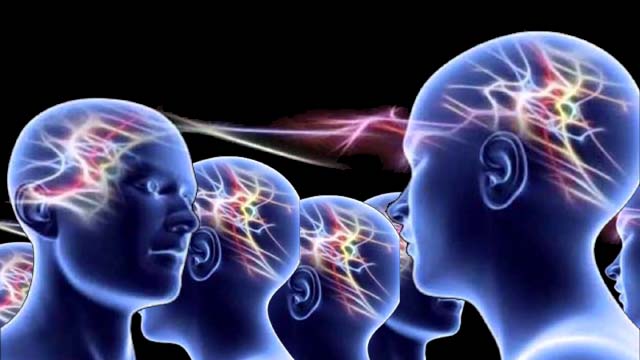All we hear lately is the coming 2nd Industrial Revolution, an advent of robotics and AI. All that being good, sexy and relevant, we are ignoring numerous parallel processes that have a fateful impact on our lives. Let’s discuss the nature of information and the ways it revolutionizes our lives.
Nowadays information is key. Those who possess the information possess the world. Who controls information then? And how did this control change over time?
According to Jacek Utko, “World’s Best Newspaper Designer”, we have already experienced 2 Information Revolutions and are now facing an upcoming 3rd one, way more unpredictable and uncontrollable than the previous ones.
Second Revolution is something we find engulfed in on an everyday basis. Far continents became closer to us when we can get news on them as easily as on the city we live in. We are no more confined to the circle of our classmates and work colleagues to be friends with. We can find love by a swipe to the right and we can adopt a koala named Lili who lives in the Australian reservoir. Internet has redefined the way we communicate, consume information and express ourselves.
Self-discipline and the ability to prioritize became way more relevant than a mere access to information. 2nd Information Revolution made knowledge so ubiquitous and readily available that we need to take extra effort to be an active consumer of information rather than an easily influenced victim of propaganda.
So many sources, so many opportunities to find what we want… Can there even be an information monopoly over our brains given such an amalgamation of sources?
According to Jacek, we are already using a centralized source of news, which turns out to be a facebook Newsfeed. “It has long ceased to be a mere connectivity tool, but became our very source of knowledge” – says Utko.
Google is not nearly as powerful in shaping your opinion as Facebook which is innocently feeding you “proven” information, shared by your circle. If we state that the reality goes as far as we perceive it, we can easily rely on Facebook as our major source of universal Truth.
Nevertheless, it is hard to dispute an overwhelming amount of what we call professional journalism appearing in our Facebook feed. Unlike most communication providers, Facebook escaped the “dumb pipe” scenario harvesting advertising budget and becoming THE source.
Strangely as it may sound, we can now say that Facebook has become the dominant source of information we consume and care about. Google has come to be the space we actively search for information. As Jacek puts it, Google is taking newspapers’ money and facebook is taking their audience. Newspapers were lured into the attractiveness of “instant articles” only to be left in the abyss of commodification.
“It is high time to share,- says Jacek Utko, – unless Facebook wants to be left in an information vacuum full of cute kittens and Trump memes”. People still want quality information and it’s in Facebook best interest to keep its news sources afloat.
Being often asked about the future of newspaper, Jacek states that newspapers will be degraded no more than the current day websites and electronic magazines. “We now consume everything on mobile. In a few years’ time we will have all we need on our VR sets, on the lenses or on a popping up hologram”. It won’t really matter whether you switched to an electronic version of your favorite newspaper 5 years ago.
Neither version would be your brain’s bread and butter when the only thing you will need to do is to tell your virtual PA you want to know the latest news on migration or Burning man.
It would be fair to state most people use Facebook feed not because they know what they want to know, but precisely because they don’t. How will we serve an undecided reader, who is in the majority, by the way? Mr. Utko believes there would exist huge data bases of “stock information”, though their role will be same as the role of TV box in the age of Netflix and Apple TV.
The content is already heavily twisted towards video and audio with text being only a tiny precious space of conveying facts. Jacek Utko designed ones of the best newspapers’ and magazines’ covers in Europe and Asia. When asked what will be a decisive factor in attracting the audience few years from now, he said it will be the design of the content itself, rather than an interface where it is being presented.
 Having said that, we are coming to the topic of the 3rd Information Revolution. Many scientists and businessmen say we are approaching the era of Singularity and omnipresent AI. Jacek Utko believes AI-enabled mind uploading and immediate information interchange will lead to the formation of a universal interconnected mind. This mind will be composed of artificial minds and the minds of people willing to join the “network”.
Having said that, we are coming to the topic of the 3rd Information Revolution. Many scientists and businessmen say we are approaching the era of Singularity and omnipresent AI. Jacek Utko believes AI-enabled mind uploading and immediate information interchange will lead to the formation of a universal interconnected mind. This mind will be composed of artificial minds and the minds of people willing to join the “network”.
We won’t need to read Stephen Hawking to grasp the essence of gravitational singularity theorem when all we need to do is to connect to Hawking’s mind and get an instant answer to our inquiry. We won’t have to look for a good lawyer when we will have an accident or a risky deal. We won’t need to conduct a cumbersome election procedure to appoint a new President when all we would have to do is to virtually connect to the “network” at a given moment in time.
Taking such a hypothesis as a realistic prediction of a coming Information Revolution, we are left with more questions than answers. Will we end up in a “Minority Report” reality where your thoughts become public property and can dictate your fate against your own will? What will be the major incentive to join the “network”?
Why would Stephen Hawking or Elon Musk share their ideas with billions of people who have never moved their finger to learn a damn thing? How can we be sure we get the right information from the requested source? How will secure connection be established? What kind of encryption and privacy mechanisms will exist to prevent interception?
How do we protect ourselves and the whole humanity from a malware and the most dangerous hacking of all times, – the hacking of a “universal human mind”? What would be the regulations to ensure only a certain percentage of people is connected at a given time? Where will we get the bandwidth for such interconnectivity?
Will there be special criteria, intellectual or ethics test to join? How do we exploit AI and prevent it from exploiting us? Will there still be a need to spend any time for learning a new skill?
While all these and hundreds of other questions remain to be answered, the prospect of universal connectivity does not seem that far off the mark, accounting for the latest talks on mind uploading and machine learning advancements. Not to mention the divine power a single individual will be able to gain and the unlimited opportunities unveiling in front of humanity on a cosmic scale.




























